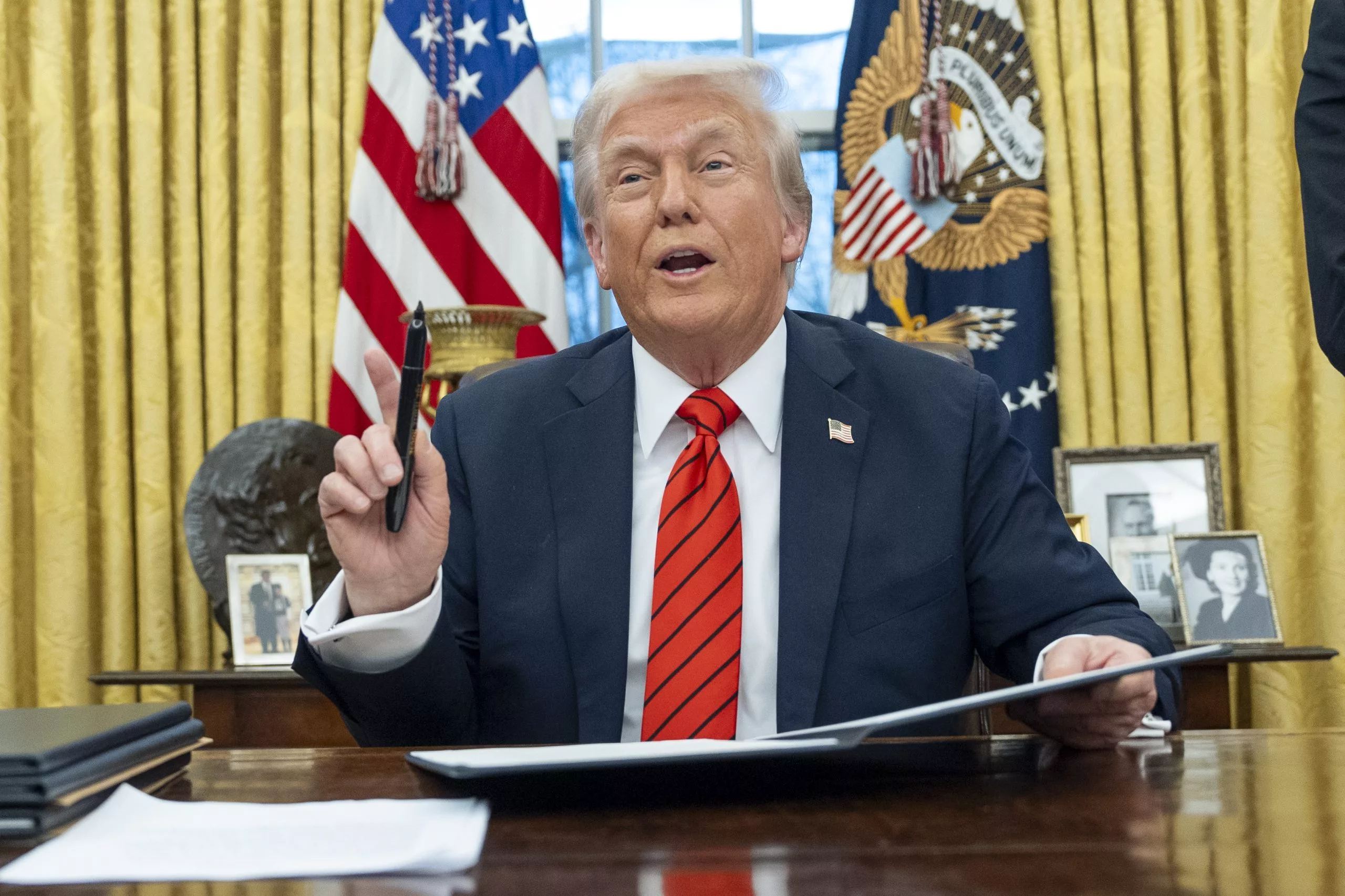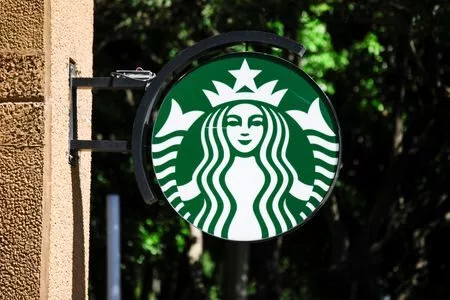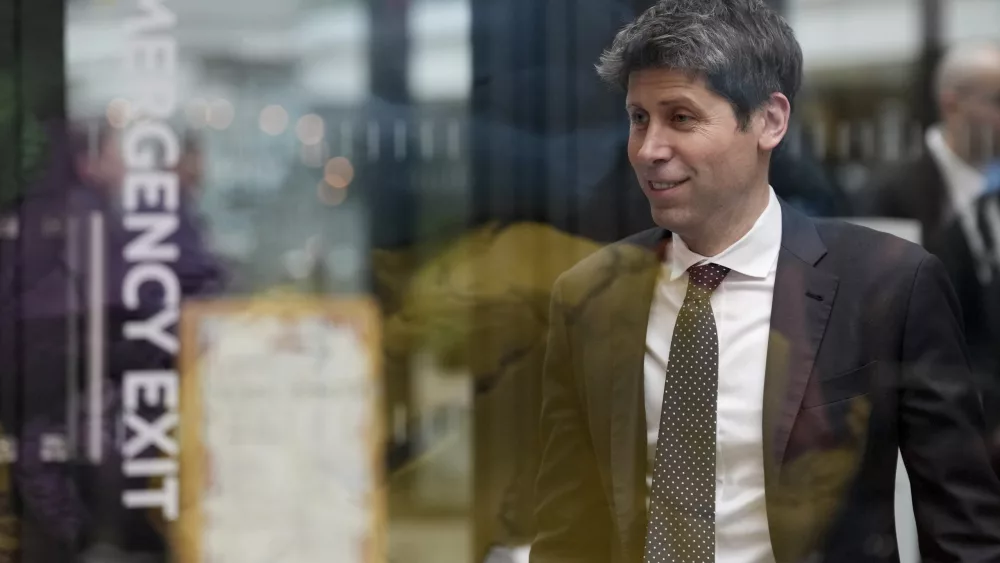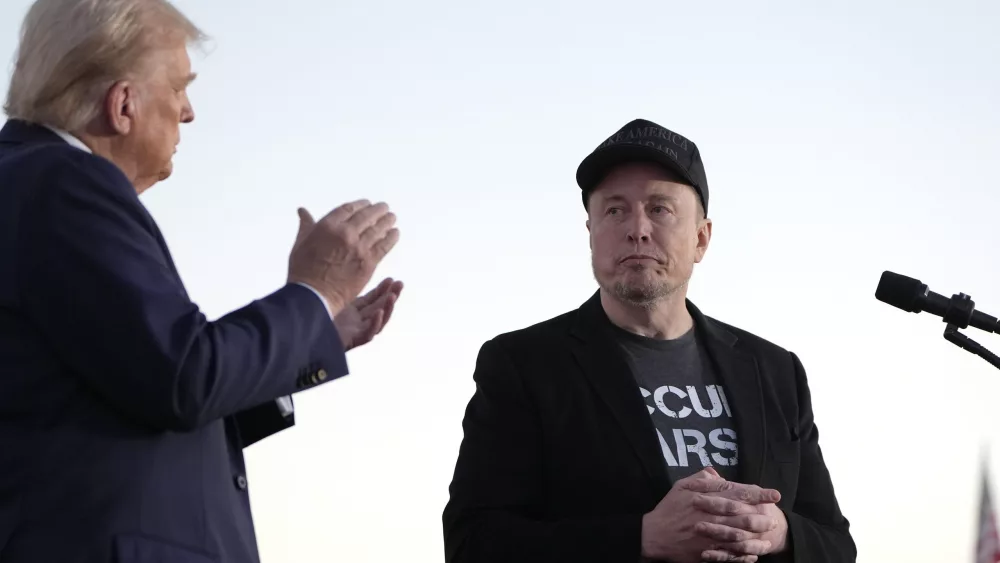President Donald Trump will host Jordan’s King Abdullah II at the White House on Tuesday as he escalates pressure on the Arab nation to take in refugees from Gaza — perhaps permanently — as part of his audacious plan to remake the Middle East.
Meanwhile, Pope Francis issued a major rebuke to the Trump administration’s mass deportation of migrants, warning the program to forcefully deport people purely because of their illegal status deprives them of their inherent dignity and “will end badly.”
Here’s the latest:
The White House issued a statement Tuesday morning saying Trump and Prime Minister Anthony Albanese discussed “concerns about China’s aggressiveness.”
They also talked about “mutually beneficial trade and investment” as Trump prepares to enact reciprocal tariffs on other countries. That means the U.S. will slap import duties on products from countries that impose similar duties on American goods.
Trump and Albanese also stressed their commitment to growing the U.S.-Australia partnership and upholding a free and open Indo-Pacific.
The Department of Government Efficiency’s embed into the federal government has raised a host of concerns, transforming a debate over how to cut government waste into a confrontation over privacy rights and the nation’s financial standing in the world.
DOGE, spearheaded by billionaire Donald Trump donor Elon Musk, has rapidly burrowed deep into federal agencies and taken drastic actions to cut spending. This includes trying to get rid of thousands of federal workers, shuttering the U.S. Agency for International Development and accessing the Treasury Department’s enormous payment systems.
Advocacy groups and labor unions have filed lawsuits in an attempt to save agencies and federal worker jobs, and five former treasury secretaries are sounding the alarm on the risks associated with Musk’s DOGE accessing sensitive Treasury Department payment systems and potentially stopping congressionally authorized payments.
▶ Read more about experts’ concerns about DOGE’s access
Trump said Monday that a precarious ceasefire agreement between Israel and Hamas should be canceled if Hamas doesn’t release all the remaining hostages it is holding in Gaza by midday on Saturday — though he also said that such a decision would be up to Israel.
Trump was responding to Hamas saying it will delay the further release of hostages in the Gaza Strip after accusing Israel of violating the three-week-old ceasefire.
“If they’re not here, all hell is going to break out,” Trump said. He added of the ceasefire, “Cancel it, and all bets are off.”
Those comments came after Trump said in an interview with Fox News Channel that Palestinians in Gaza would not have a right to return under his plan for U.S. “ownership” of the war-torn territory — contradicting other officials in his administration who have sought to argue Trump was only calling for the temporary relocation of its population.
▶ Read more about Trump’s comments on the ceasefire
President Donald Trump will host Jordan’s King Abdullah II at the White House on Tuesday as he escalates pressure on the Arab nation to take in refugees from Gaza — perhaps permanently — as part of his audacious plan to remake the Middle East.
Trump has proposed the U.S. take control of Gaza and turn it into “the Riviera of the Middle East,” with Palestinians in the war-torn territory pushed into neighboring nations with no right of return.
He suggested on Monday that, if necessary, he would withhold U.S. funding from Jordan and Egypt, longtime U.S. allies and among the top recipients of its foreign aid, as a means of persuading them to accept additional Palestinians from Gaza.
Jordan has flatly rejected Trump’s plan to relocate civilians from Gaza.
In addition to concerns about jeopardizing the long-held goals of a two-state solution to the Israel-Palestinian conflict, Egypt and Jordan have privately raised security concerns about welcoming large numbers of additional refugees into their countries even temporarily.
▶ Read more about the upcoming meeting
President Trump is hitting foreign steel and aluminum with a 25% tax. If that sounds familiar, it’s because he did pretty much the same thing during his first term.
Trump’s original metals tariffs gave America’s struggling steel and aluminum producers some relief from intense global competition, allowing them to charge higher prices. In anticipation of the new tariffs, shares of steel and aluminum producers climbed Monday. Nucor rose 5.6%, Cleveland-Cliffs jumped 17.9% and Alcoa ticked up 2.2%.
But the tariffs took a toll last time, too, damaging U.S. relations with key allies and driving up costs for “downstream’’ U.S. producers that buy steel and aluminum and use them to manufacture goods.
The overall economic impact on the United States was limited then – and is likely to be limited again — because steel and aluminum imports amount to barely a ripple in the almost $30 trillion U.S. economy.
▶ Read more about the impact this will have on the economy
Brought to you by www.srnnews.com








